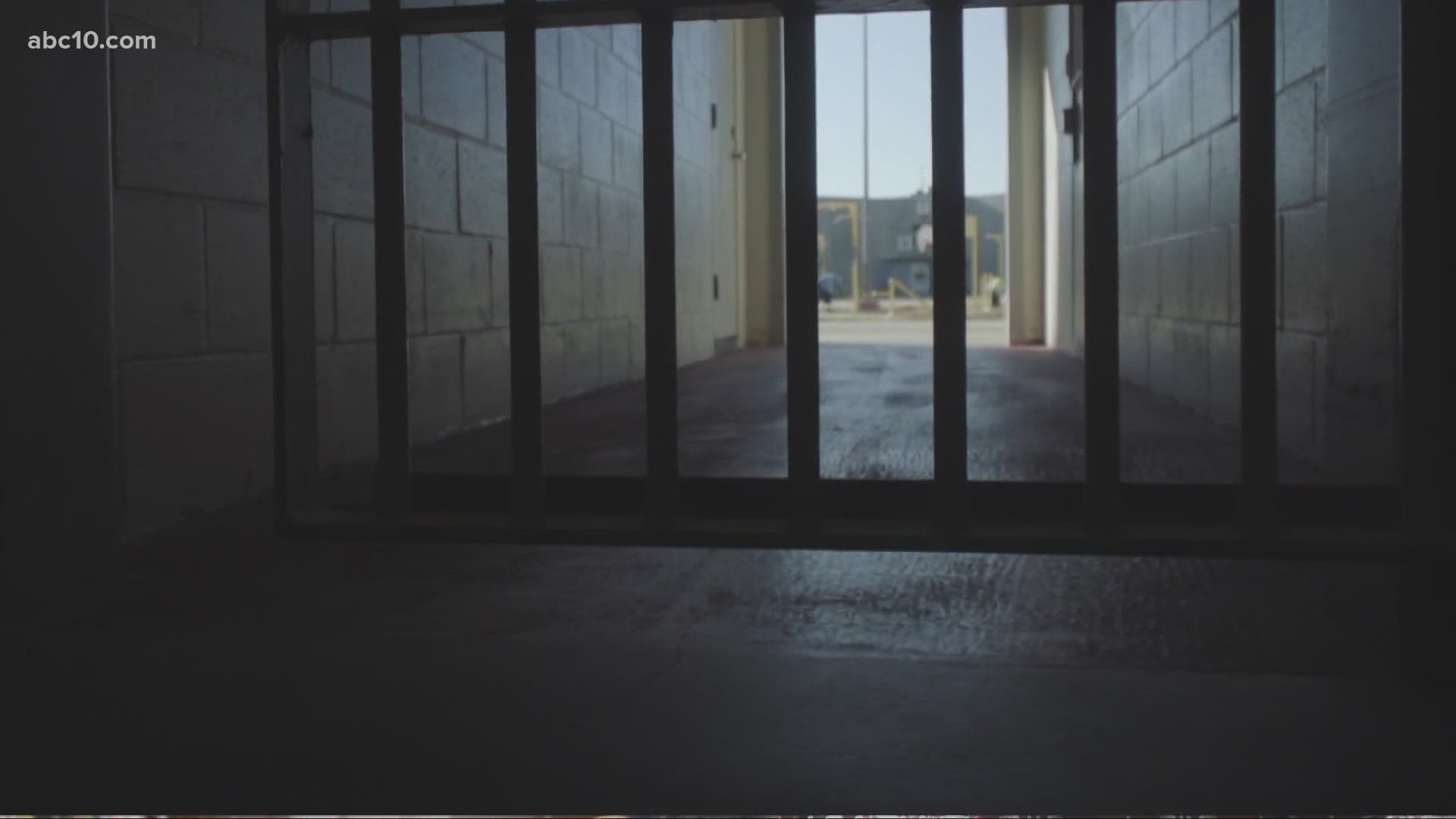SACRAMENTO, Calif. — On Saturday afternoon, several community groups held a get-together focused on voting, outside the Florin Plaza shopping center in South Sacramento.
Henry Ortiz helped organize the event. He's with the Sacramento chapter of All of Us or None, described as "a grassroots civil and human rights organization fighting for the rights of formerly-and currently-incarcerated people and our families."
He said Saturday's gathering was focused on getting "more voter engagement in communities of color, predominantly Black and Brown communities, because we have the lowest rates of voting and elected officials and yet we have the highest rates of incarceration and police brutality."
Ortiz is also a formerly incarcerated community organizer, who is advocating for Proposition 17.
"'Yes on 17' is really, basically, establishing voting rights for people on parole," Ortiz said.
Under current state law, when a convicted felon gets out of prison and starts their parole, they have to wait until they finish parole before regaining the right to vote.
"We're expected to work, we're expected to pay our restitution fees in courts, but yet we can't vote," Ortiz said. "Some of us have made profound changes and have given back to the community but we can't vote."
Voting 'yes' on Prop 17 would change that, allowing California felons to regain the right to vote after they finish their prison sentence and are out on parole.
Voting 'no' on Prop 17 would leave the law as it is right now: no voting rights until parole is done.
Those against Prop 17 include Crime Victims United of California, Election Integrity Project California and Jim Nielsen, former chair of the California Board of Prison Terms and current Republican State Senator, whose District 4 includes parts of Sacramento, Placer, Sutter and Yuba counties.
They all signed the argument against Prop 17 in the official voter information guide registered voters should be receiving in the mail.
In it, they say:
"Parole is to prove rehabilitation before full liberty, including voting rights, is restored...Giving violent criminals the right to vote before they have successfully completed their full sentence, which includes a period of parole, is like giving students a high school diploma at the end of tenth grade. It makes no sense, and hurts their future and all of society."
Those in favor of Prop 17 include the League of Women Voters of California, Californians for Safety and Justice and Sacramento Democrat Assemblymember Kevin McCarty, who introduced the bill that lead to Prop 17 landing on statewide ballots.
Also in favor is ex-felon Andy Williams Jr., who attended Saturday's event outside Florin Plaza.
"Paroled people, ex-felons need the right to vote," Williams told ABC10. "Once we're done with that incarceration, it's over. Once we walk out them doors, we should have the right to vote, period."
If passed, Prop 17 would allow convicted felons the right to vote if they are released from prison on parole. They would not have to wait to be able to register to vote.
California wouldn't be the only state to allow convicted felons to participate in elections. Sixteen other states, including the District of Columbia, give parolees the right to vote.
While Prop 17 would make the policy more liberal, it still won't be the country's most liberal stance. Maine and Vermont allow all felons the right to vote even while they are still serving their sentences in prison.
Sen. Nielsen, arguing against Prop 17 in the voters guide, said parolees should finish their parole sentences before they're allowed to vote again.
"Let’s talk a little about the universe we are dealing with here," Nielsen said. "They include murderers, voluntary manslaughter, rape, sodomists. For those that commit the crimes, particularly the heinous crimes, part of their sentence is to complete the parole period."

